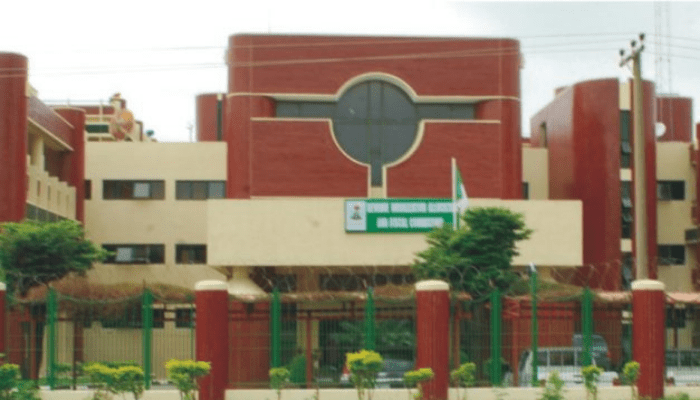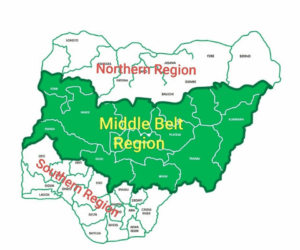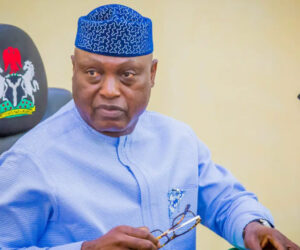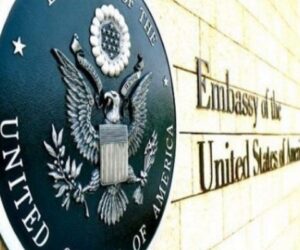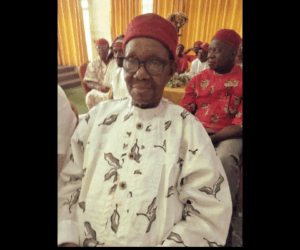The recent announcement by the Revenue Mobilisation, Allocation and Fiscal Commission, RMAFC, of its plan to review the remuneration packages for all political, public and judicial officers in Nigeria rightly provoked nationwide outrage. Although the commission is constitutionally empowered to determine the remunerations of officeholders, its decision to bump up the salaries and allowances of public officers when most Nigerians are experiencing untold economic hardship smacks of utter insensitivity and an abject lack of humanity.
Universally, when a country is undergoing a painful economic period, amid widespread poverty and inequality, the government should show that “we are all in it together” by restraining pay increases for public officers. For instance, in 2010, when the then UK government introduced an austerity policy to tackle the country’s debt crisis, the prime minister, ministers and special advisers took pay cuts. But the “we-are-all-in-it-together” principle is alien to Nigeria as public officers’ remunerations always rise sharply just when poverty is deepening and people’s disposable incomes are plummeting.
In July, the presidency took umbrage when the US Embassy in Nigeria tweeted: “While Nigerians are urged to endure economic hardship like ‘labour pains’, some governors are splurging billions on new government houses.” The presidency accused the US of running a campaign to undermine Nigeria. Yet, the embassy was simply echoing the universal principle that public officers should not live in opulence while ordinary citizens are condemned to hardship and misery. Last week, Indonesian citizens took to the streets to reject a new housing perk for the legislators that would increase their monthly salary by $3000 when the government’s austerity measures have caused job losses and reduced consumer spending power. The protests forced the parliament to cut back on its members’ benefits, including allowances. That principle of “we are all in it together” during economic hardship is so strong that most governments ordinarily abide by it, while others are forced to do so!
Sadly, not in Nigeria! Yet, RMAFC said that in determining the remuneration packages for officeholders it is guided by a) prevailing economic realities and b) remuneration practices in other countries. But take the first: How can the prevailing economic realities in Nigeria justify increasing the remuneration packages for public officers? Is it the fact that President Tinubu’s economic reforms have pauperised millions of ordinary Nigerians so much so that most are skipping meals, according to the General Household Survey Panel results, published by the National Bureau of Statistics last year? Or is it the fact that the middle class, the engine of every economy, is virtually non-existent in Nigeria, having been utterly eviscerated? Truth is, the prevailing economic realities in Nigeria simply cannot justify hiking up public officers’ salaries and allowances. So, RMAFC fails its own first test!
“Truth is, the prevailing economic realities in Nigeria simply cannot justify hiking up public officers’ salaries and allowances. So, RMAFC fails its own first test!”
In self-justification, the commission said: “You are paying the President N1.5mn a month. Everyone believes that it’s a joke.” It added: “You can’t pay a minister less than N1mn a month.” But does the president really live on N1.5mn a month? Does a minister live on less than N1mn a month? What about the billions of naira budgeted for the president’s office annually? What about the billions budgeted for a minister’s office every year? These are important questions because outside of the remuneration packages, the budgets always include billions from which the president, vice-president and ministers often spend on themselves. The truth is that the Nigerian state indulges and pampers public officers well beyond their formal remuneration packages and in total disregard of the economic realities. So, it’s not a “joke” that the president formally receives N1.5mn a month.
Which brings us to RMAFC’s second test. The commission says it considers remuneration practices in other countries in determining remuneration packages for Nigerian public officers. Which countries does it benchmark itself against? How many countries have remuneration packages for public officers that include such items as domestic staff, utilities, entertainment, wardrobe, furniture, house maintenance, and hardship. If public officers are paid for “hardship”, where are the social safety nets to mitigate the utter hardship that the government’s economic policies have inflicted on ordinary Nigerians, a point recently made by Dr Ngozi Okonjo-Iweala in her much-publicised intervention?
But for me, here’s a more critical question: Does RMAFC’s remuneration packages take account of corruption, or the massive looting of state treasuries by public officers? In several countries, the remuneration packages for officeholders are truly meaningful so much so that any other use of public funds for private purposes can attract a criminal penalty. For instance, recently, the wife of the Spanish prime minister was charged with embezzlement of public funds for using state funds to pay her assistant for help with personal matters. Would that be regarded as an offence in Nigeria? How many public officers use public funds for personal gains in Nigeria and do so with utter impunity?
Perversely, RMAFC itself admits that it cannot enforce adherence to the remuneration packages it produces. In one statement, the commission’s chairman, Mohammed Shehu, said: “I wish to state that RMAFC does not have the constitutional powers to enforce compliance with proper implementation of the Remuneration package.” In 2024, when a former senator, Shehu Sani, disclosed that each senator collects a monthly running cost of N13.5mn, the chairman of RMAFC issued a statement saying that a senator’s monthly salary and allowances totalled only N1,063,860. So, how come a senator receives more than N12mn every month? The RMAFC chairman was evasive, saying that “any allegation regarding other allowance (s) being enjoyed by any office holder outside those provided on the Remuneration packages should be explained by the person who made the allegation.” In other words, RMAFC has no control over what public officers are actually paid, despite the remuneration packages.
So, what’s the purpose of remuneration packages and pay rises if public officers can still dip their hands into the public purse and give themselves whatever amount they like? Sadly, Nigeria is a country where public officers routinely feather their nests at society’s expense, a country where the large-scale transfer of public resources for private interests is rife.
Yet, laughably, President Tinubu recently said his administration has ended corruption in Nigeria, saying that because of his economic reforms, “there is no more corruption.” Given the allegations of massive corruption swirling around some of his ministers, he should ask them to publicly declare their assets at home and abroad and explain their sources. It’s interesting that while Tinubu brags about stopping corruption, the EFCC chairman, Ola Olukoyede, recently disclosed that public officers “have perfected the antics of anticipatory declaration of assets to justify their intended stealing of public funds and other acts of corruption.” In other words, they are inflating their assets in the declarations so that after plundering the treasury they can later claim they owned the assets before coming into office!
Here’s the inexorable conclusion: the remuneration system is a fraud. Neither the package nor its periodic review has stopped corruption in Nigeria. If RMAFC can’t enforce adherence to a remuneration package, it should stop deceiving Nigerians that its exercise is meaningful. In the end, Nigeria needs Unexplained Wealth Orders, UWOs. Public officers who can’t explain the source(s) of their wealth beyond their official salaries must forfeit it! Only then would RMAFC’s remuneration packages for public officers make sense!

